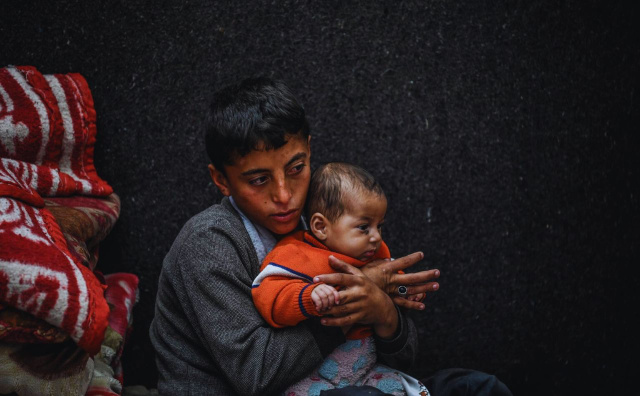Over half a million people in Gaza are now living under famine conditions, according to a new analysis by the Integrated Food Security Phase Classification (IPC). This marks the first official confirmation of famine in the Middle East.
The IPC report confirms that Gaza Governorate has entered full-scale famine, with the crisis expected to spread into Deir Al Balah and Khan Younis in the coming weeks. Evidence shows widespread starvation, acute malnutrition, and preventable deaths across the population.
By the end of September, more than 640,000 residents are projected to face the most extreme level of food insecurity, known as IPC Phase 5. Another 1.14 million will remain in Emergency (IPC Phase 4), while nearly 400,000 are at Crisis level (IPC Phase 3). North Gaza is also affected, though reliable data is scarce. Rafah was excluded due to near-total depopulation.
Years of conflict, mass displacement, and severe restrictions on aid have dismantled Gaza’s food supply chains. Agricultural production has been destroyed, markets are non-functional, and health and sanitation systems are collapsing. In July, 39 percent of families reported going days without food, nearly doubling from May.
Child malnutrition has reached unprecedented levels. More than 12,000 children were identified as acutely malnourished in July alone — the highest monthly figure recorded. Nearly one in four is suffering from severe acute malnutrition. Projections warn that by June 2026, over 43,000 children could face life-threatening conditions.
Pregnant and breastfeeding women are also at high risk, with an estimated 55,000 expected to suffer from extreme malnutrition by mid-2026, a dramatic increase from earlier estimates. Infant health is worsening, with one in five babies born underweight or prematurely.
Despite a slight increase in aid deliveries since July, supplies remain far below what is required. With 98 percent of cropland damaged, food production has collapsed. Fuel and water shortages, disrupted aid distribution, looted supply trucks, and soaring food prices deepen the crisis.
The health system is on the brink. Hospitals struggle with shortages while children face rising cases of diarrhoea, respiratory infections, and drug-resistant illnesses. Doctors warn that malnutrition is turning treatable diseases into deadly threats.
Global agencies stress that only an immediate and sustained ceasefire can prevent mass deaths. The Food and Agriculture Organization (FAO), UNICEF, the World Food Programme (WFP), and the World Health Organization (WHO) all urge unrestricted humanitarian access.
FAO Director-General QU Dongyu emphasized that food access is a basic human right, while WFP chief Cindy McCain noted that famine warnings had been clear for months. UNICEF’s Catherine Russell highlighted the accelerating toll on children, and WHO Director-General Tedros Adhanom Ghebreyesus declared a ceasefire a “moral imperative.”
Without urgent action, Gaza’s famine could become one of the gravest humanitarian disasters of the decade.

